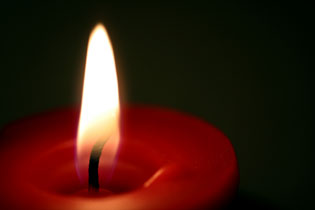
As the 2004 Boxing Day tsunami swept over the coast of Sri Lanka it left 40,000 dead and thousands more lives destroyed in its wake. Amongst the affected was a small fishing community on the south east coast. In previous years, these villagers had persecuted the people of a neighbouring village of Christians. The Christians' church had been burnt down and damaged, the pastor and his people attacked, and their children taunted. It had been a frightening period for the Christians.
So it was startling to hear that following the tsunami the pastor gathered his people and together they recovered bodies, erected temporary shelters, and fed and clothed their devastated and confused neighbours. For three days the Christians returned and worked alongside their persecutors, until bodies were buried and the area cleared.
On the third day a village elder spoke to the pastor and asked: 'Why? We hate you, why would you help us?' The pastor replied, 'Because you are my neighbour. God loves you and I must serve you.' The multiple layers of darkness that pervaded this situation were sliced wide open by the light of God's unconditional love expressed through the actions of frightened but responsive servants.
In the midst of indiscriminate destruction, the confusion and hopelessness that followed the tsunami's devastating wall of water was a crushing darkness that yelled into the eternity of the human soul.
I felt this darkness deepen further when some Christian commentators pronounced their belief that this was God's judgement on a sinful people. Stories of how Christians and their property were saved, while followers of other faiths lost family and property were used to strengthen their argument that God takes care of God's own, punishing those who choose to follow other gods. (The truth of the correlation between destruction and faith was very different, I can assure you.)
The thing that disturbs me is that informing these prejudiced commentaries is the non-verbal, but very real belief, that God doesn't love all people. That in our world there are those who are enlightened'in the religious context we call them Christians, in the geographical we call them first-worlders, in the Caucasian we call them 'white'. And of course, for balance there must be those who are in darkness' those who are not like us!
The colonial mentality of the Christian taking God to the barbarians still prevails. We may not say it, we definitely don't write it, but underlying the motivation of our giving and our going to 'others' is the belief that we are in the light and our duty is to save those in who live in darkness.
How arrogant can we be? Is it not possible that God already exists in that which we label darkness? Is it not possible that God is revealed to all people, regardless of religion, ethnicity and colour? Could it be that 'everything was created through God; nothing'not one thing!'came into being without him. What came into existence was Life, and the Life was Light to live by. The Life-Light [God] blazed out of the darkness.' (John 1:3-4, The Message)
Is it possible that we do not always recognise the fact that the Light shines on in the darkness because we are measuring the Light by our own predetermined set of rules and biases?
Our responsibility is not to take God into that which we call darkness. God is already there, and the darkness has never, and can never, overpower the Light (John 1:5). Our role is to find the ways in which the Light is already being revealed by asking God to open our eyes, and having been helped to recognise the Creator's continuing engagement, to become partners in God's revelations.
This involves our putting aside constrictive assumptions of God and'rather than being lecturers'becoming listeners and learners as well as contributors.
"Our first task in approaching another people, another culture, another religion, is to take off our shoes, for the place we are approaching is holy. Else we may find ourselves treading on men's dreams. More serious still, we may forget that God was here before our arrival." - Max Warren
by Major Daryl Crowden (an Australian Southern Territory officer currently serving in the New Zealand, Fiji & Tonga Territory. Daryl was part of The Salvation Army's international tsunami support team in Sri Lanka)
Reprinted with permission from War Cry (New Zealand, Fiji & Tonga Territory)